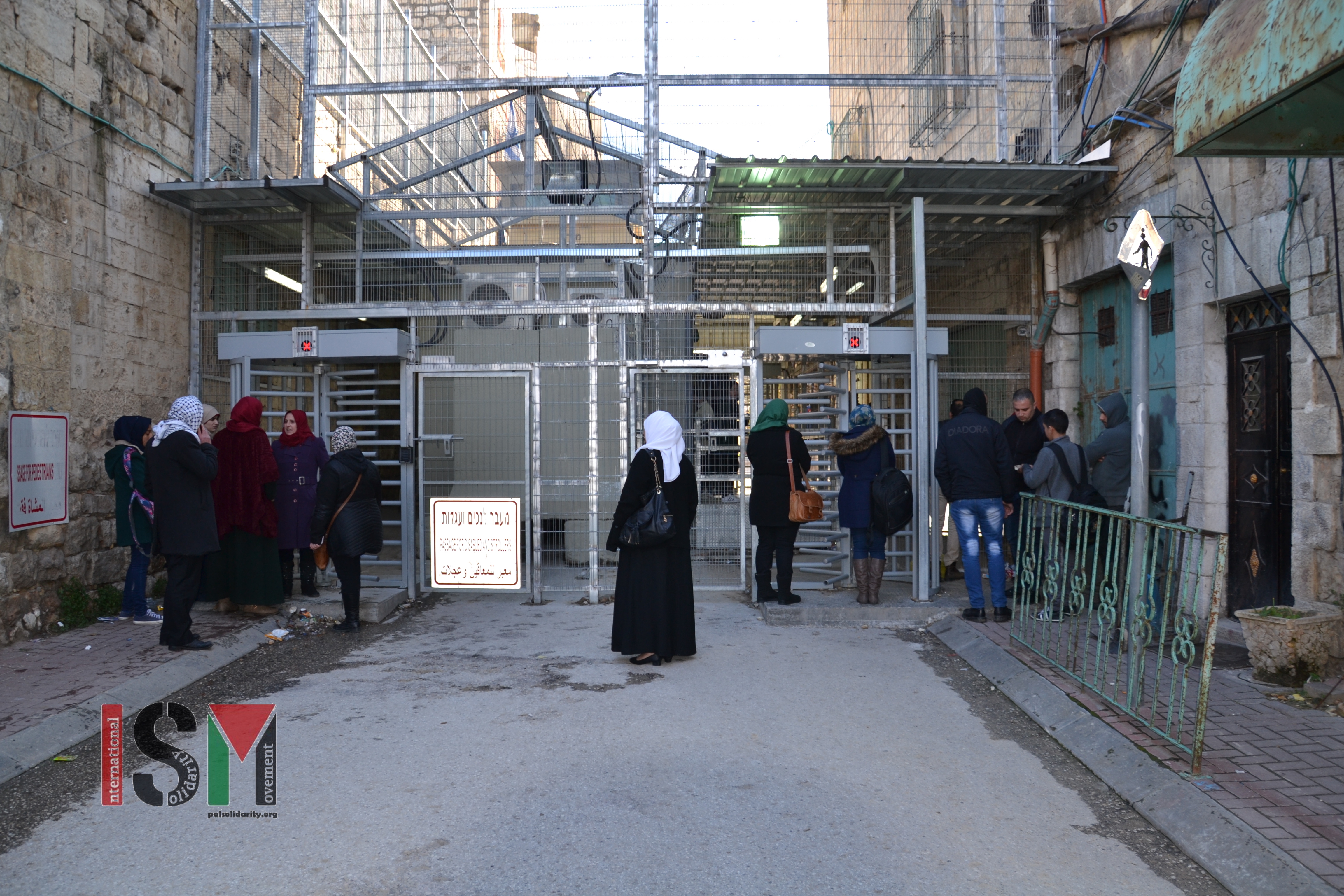Tag: Sexual harassment
-
Checkpoints for humiliation: a journal piece
4th April 2017 | International Solidarity Movement, al-Khalil team | Hebron, occupied Palestine Earlier this month, an international woman was ordered to ‘take off her clothes’ after setting off the alarm whilst passing the metal detector at Shuhada checkpoint, occupied al-Khalil (Hebron). This is a personal journal of the events. Humiliation, harassment, intimidation – a…
-
ISM volunteers encounter settler attack and sexual harassment in Hebron
by Emma and Meriam 10 January 2012 | International Solidarity Movement, West Bank Around midnight on January 10th two international, female activists were attacked by a middle aged settler woman living in the occupied area of Hebron. After entering Shuhada Street, which is closed to Palestinians, the two women encountered a settler woman who threw…

